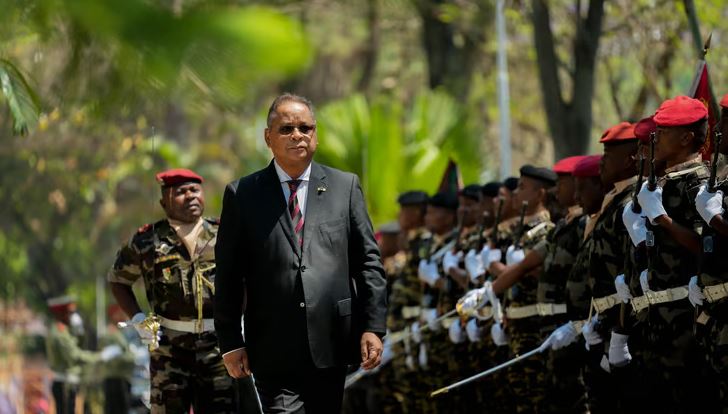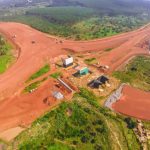Published on 29/10/2025
The composition of the new team, made up of 29 members, was unveiled on Tuesday. The president and the prime minister sought to satisfy various circles and had to make compromises.
The composition of Madagascar’s first “refoundation government” has been revealed after long-and-hard consultations and compromises behind the scenes.

President Michael Randrianirina and his Prime Minister Herintsalama Rajaonarivelo had to reconcile the many expectations expressed by various political parties, but also by business circles, the armed forces and the elusive Generation Z that precipitated the fall of Andry Rajoelina.

“Each member of the government will have at most two months to show their ability to follow the state’s policy,” Randrianirina said.
“Results will be observed. And if there is nothing to observe, that person will be replaced,” he added, expressing his determination to find concrete solutions to water and electricity shortages and to fight corruption.
Several familiar faces
The new team includes several well-known figures from Madagascar’s political scene. Among them is Christine Razanamahasoa, the new minister of foreign affairs. She served as minister of justice under Rajoelina between 2009 and 2013 and twice presided over the National Assembly before falling out with the deposed president and being expelled from his party.
In 2023, she had called for the suspension of the electoral process, considering that “the conditions for a calm, credible and universally accepted election [were] not met”.
Influential retired gendarmerie general Lily-Arison René de Roland, the current governor of the Sofia region in the north of the island, was former right-hand man of Rajoelina when the latter was president of the transitional government from 2009 to 2014.
He “distinguished himself” during the harsh repression of cattle thieves (dahalo), which caused many civilian casualties. He had since fallen into disgrace and was present in Antananarivo alongside “Colonel Michaël” on the evening of 11 October, the day of the military revolt. He becomes minister of land planning and land services.
Prominent magistrate
Newly appointed Minister of Justice Fanirisoa Ernaivo ran against Rajoelina in the 2018 presidential election, then fled to France, where she obtained political refugee status.
She regularly sounded the alarm on Facebook about the abuses of the Rajoelina regime. Ernaivo was sent by Malagasy authorities to Mauritius to strengthen judicial cooperation between the two countries concerning the once powerful and now disgraced businessman Mamy Ravatomanga.
Ravatomanga fled to Port Louis during the night of 11-12 October and has since been arrested. It is the first time in seven years that he has not been able to influence the composition of the government.
Hanitra Razafimanantsoa, meanwhile, becomes minister of state attached to the presidency, in charge of refoundation. A member of parliament and lawyer, she is close to former president Marc Ravalomanana, overthrown in 2009 by Rajoelina.
Another new entrant, Maminirina Ely Razafitombo, takes charge of the Armed Forces. This general had once been considered for the post of prime minister under Rajoelina, just before his downfall. “He’s a unifying figure among the armed forces,” explains a source familiar with Madagascar’s military circles.
Also noteworthy is the appointment of Gascar Fenosoa Mandrindrarivony as minister of communication and culture. A journalist and member of parliament, he was among those who actively campaigned for the impeachment motion against Rajoelina on 14 October.
Setting priorities
This government must, therefore, ensure the provision of basic services but also respond to the urgent and pressing concerns about governance. And although President Randrianirina sought to be reassuring, the NGO Transparency International Initiative Madagascar has warned against the numerous releases that have already taken place outside any judicial framework.
Priorities must be set and concrete paths defined – paths that will inevitably encroach on the interests of the minority, sometimes mafia-like, that benefits from the system
These releases risk “casting doubt on the sincerity of the refoundation process”, it cautioned in a statement dated 21 October. It cited, for example, the release of Roméo Christophe Ramanatanana, a member of parliament sentenced to 10 years in prison for turtle trafficking and money laundering.
“Everyone agrees on the major challenges: water, electricity, good governance,” says a political adviser. “But priorities must be set and concrete paths defined – paths that will inevitably encroach on the interests of the minority, sometimes mafia-like, that benefits from the system.”
The other major question concerns the reaction of Gen Z. Will demonstrations resume after the announcement of the government’s composition? “You didn’t listen,” posted the Gen Z Madagascar account on Instagram.
Officially, the collective did not wish to be represented in the government but had warned that it would be highly vigilant.
It is doubtful whether the appointment of Ny Ando Ralitera, a recent graduate in astronomy and astrophysics, as minister of energy will be enough to quell the anger. He will bear the heavy responsibility of managing the state’s relations with Jirama, the national water and electricity company.
When contacted, the Gen Z collective did not respond.
Long-term challenges
Restructuring the government will take time, and reform will not be instantaneous, according to Hejesoa Voriraza Séraphinand, a researcher at the University of Tuléar.
It is the result of long reflection, of developing an ideology and a political system adaptable to the current situation
“It is the result of long reflection, of developing an ideology and a political system adaptable to the current situation. And for the moment, I don’t see the government taking that revolutionary path,” says Séraphinand, noting that some of the new ministers have “collaborated with the former regime”.






